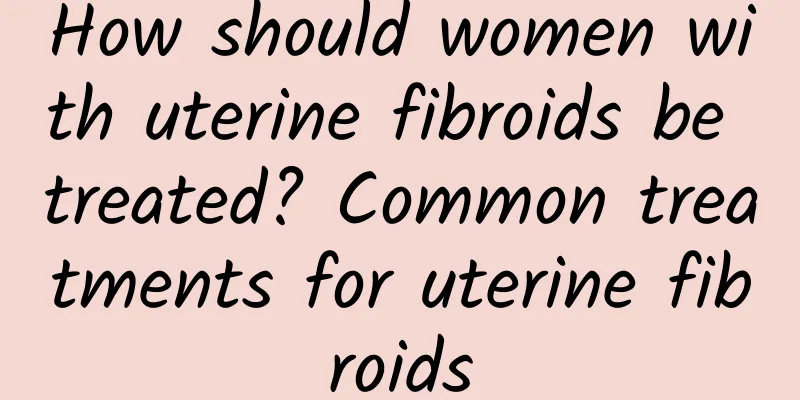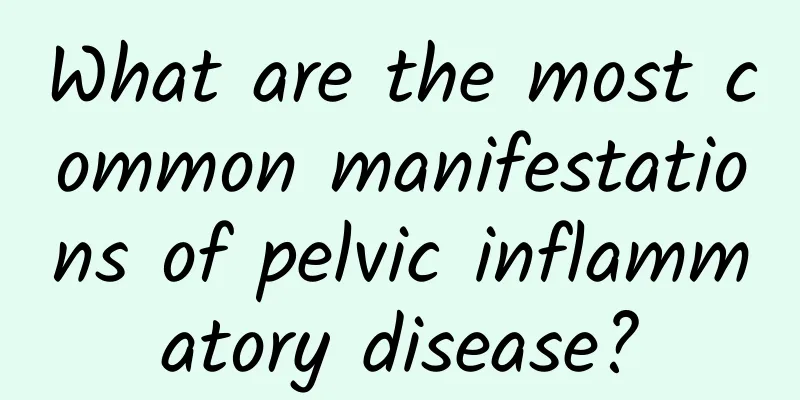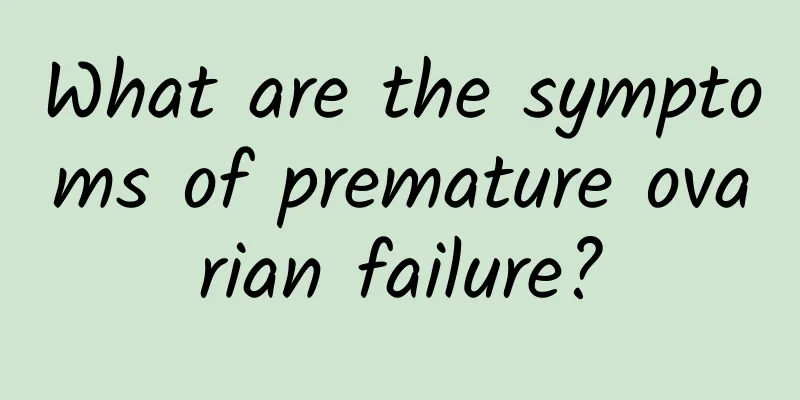How should women with uterine fibroids be treated? Common treatments for uterine fibroids

|
Women over 30 and under 50 have a high incidence of uterine fibroids. Most uterine fibroids are benign tumors, but they have certain hidden dangers. How to treat women with uterine fibroids? Uterine fibroids are a common gynecological disease in women, and multiple fibroids are the most common. Uterine fibroids are formed by uterine smooth muscle cells and a small amount of muscle fiber tissue. Uterine fibroids pose a great threat to patients' daily lives. We need to understand the symptoms and treatments of multiple uterine fibroids. There are many treatments for uterine fibroids, including surgery and Chinese medicine. Most patients with severe cases will receive surgery. Treatment should be based on the patient's age, the size of the fibroids, and the condition of the fibroids. For young patients who need to maintain fertility, premenopausal women, and patients with small fibroids and mild symptoms, medication can be used. Women who want to get pregnant can shrink the fibroids to promote pregnancy. Surgical treatment can completely eradicate the patient and eliminate the root cause of the disease. Surgical treatment includes myomectomy and hysterectomy, which can be performed through the abdomen, vagina or endoscopy. Traditional surgery is direct laparotomy, and endoscopic surgery is the use of high-tech equipment such as endoscopes to perform resection surgery. Compared with traditional surgery, endoscopic minimally invasive surgery has less trauma, less bleeding, shorter operation time, and faster postoperative recovery. Generally speaking, fibroids are small in size, asymptomatic, and require no treatment, but regular gynecological examinations and prevention are required to prevent fibroid growth and malignant changes. Surgical treatment is best for patients in the middle and late stages. Due to the harm caused by fibroids, if treatment is delayed, it may further infect other organs and endanger the patient's life. After treatment, the patient will become infertile. |
>>: How to treat uterine fibroids? How to use medication for uterine fibroids?
Recommend
Can uterine fibroids be treated with minimally invasive surgery if they are too large?
Can minimally invasive surgery be performed if ut...
Mother and daughter work together to lose 112 kilograms! "Gastric Reduction and Colonectomy" Ends Morbid Obesity
Is obesity hereditary? When a family member has o...
High fiber for weight loss without harming your body! Three Chinese herbs must be added to fruit and vegetable juices
What should you do if you want to lose weight but...
Can hyperprolactinemia be treated with medication?
Hyperprolactinemia is a very common disease that ...
Experts teach you how to prevent cervical hypertrophy.
How to prevent cervical hypertrophy? Mild cervica...
What are the treatments for chronic cervicitis in women? Introduction to Chinese and Western medicine for chronic cervicitis in women
Chronic cervicitis is a disease with a high incid...
Is the recurrence rate high after endometrial thickening surgery?
Experts point out that the factors that lead to t...
Is it normal for menstruation to last for eight or nine days? 4 reasons for irregular menstruation in women
Irregular menstruation is a gynecological disease...
Can I take ibuprofen for menstrual cramps?
Dysmenorrhea can usually be treated with ibuprofe...
How do ovarian cysts form?
How do ovarian cysts form? 1. There are many reas...
How to relieve pain in adenomyosis
How to relieve pain in adenomyosis? Patients with...
There are two main treatments for ectopic pregnancy.
In view of the harm that ectopic pregnancy brings...
What are the dangers of uterine fibroids in women?
Uterine fibroids are the most common benign tumor...
Lose weight and increase appetite? Three unbeatable rules! Nutritionist Li Ziyi: 6 fat-reducing foods that reduce gastrointestinal absorption
Delicious food always whets your appetite, but yo...
Experts introduce the examinations for irregular menstruation that you need to know
It is very important for female friends to check ...









